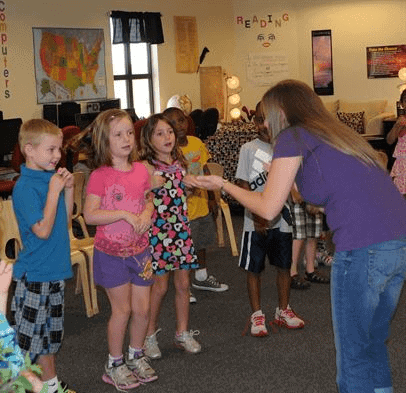Theatre Teacher Shares Three Techniques to Increase Empathy in Students

|
Getting your Trinity Audio player ready...
|
As a theatre teacher and teacher educator, I believe empathy is central to building a respectful, caring, and compassionate community. Scholarly work on empathy reveals that empathy must be explicitly taught and practiced.
In clinical psychologist Baron-Cohen’s book, Zero Degrees of Empathy: A New Theory of Human Cruelty and Kindness (2012), he identifies two types of empathy: cognitive and affective. In order to empathize with someone else, it is critical to develop and foster both kinds of empathy.
Cognitive empathy refers to the ability to recognize and understand what someone else might be thinking and feeling without judgement. Affective empathy is the ability to respond appropriately to another person’s emotional or mental state.
Teaching empathy is critical, especially in a world that seems to be becoming more divided. To strengthen our community, we must put empathy at the forefront of education.
Here are three drama strategies you can use to help students recognize and respond to emotional and mental states of others.
1. Role on the Wall: Draw a gingerbread outline of a character you wish to explore at a certain crucial moment on a large chart paper or on the whiteboard. For instance, consider George Washington’s thoughts as he’s crossing the Delaware River or Little Red Riding Hood when she realizes a wolf is in her grandmother’s clothes. Brainstorm as a class, in pairs, or individually, what that character might be thinking and feeling in that particular moment.
In the head of the character, have students write possible thoughts. In the body, students should list possible feelings. On the outside of the drawing, students should then list specific quotes or evidence to support their findings. Then, add a speech bubble to share what the character might say given the situation. Students might come to discover the dichotomy between what we say and how we feel and realize they aren’t always aligned.
This activity primes students to learn more about a character and prepares them for being able to take on the role of another. Through role on the wall, students practice recognizing emotions and thoughts of others (cognitive empathy).

2. Role play: Taking on a role requires students to not only do research of what someone might be thinking or feeling, but pushes students to actually step into the shoes of another. By taking on different perspectives, students move beyond what they’ve learned about a character and must improvise based on information they’ve collected.
To play a role respectfully, students must empathize with the role they selected or have been assigned. Students who are watching these performances should be actively identifying the emotions they see to continue to build their cognitive empathy skills. Role play requires both cognitive and affective empathy.
3. Forum Theatre: Created by Theatre of the Oppressed founder Augusto Boal, Forum Theatre is a strategy that involves watching and interacting with a scene where one or multiple people are usually in oppressive situations. The audience watches the scene first in its entirety. Then, the scene is performed again but this time, the audience moves from spectator to “spect-actor,” as an audience member can literally step into the scene and switch with one of the actors to change the course of the scene. The point is to try and fix the scenario for the better. This moves beyond recognizing emotions and encourages students to respond to the emotions and thoughts of others, in particular with the victims in the scenarios.
Students can take on multiple roles for a scene and play it out many different ways to explore a myriad of possibilities when it comes to problem-solving and helping others. Forum theatre not only practices cognitive empathy by recognizing emotions and thoughts, but responds to those emotions through positive actions and change.
References:
Biography and Role Playing: Fostering Empathy in Abnormal Psychology
Theatre of the Oppressed: A Tool for Social Change
Augusto Boal’s Forum Theatre for Teachers
Related Articles:
5 Great Activities to Do with Your Social Skills Group
5 Great Activities to Do with Your Social Skills Group (Adolescents/Teens)
8 Fun Activities to Practice Social Skills with Your Child
5 Highly Rated Kids’ Games for Practicing Social Skills
5 Great Books to Teach Young Children About Empathy
Roots of Empathy: A Research-Based Program that Counters Bullying
Research Says We Can Help Kids of All Ages Develop Empathy-Find Out How!
Thank you for visiting educationandbehavior.com, a free resource for parents, caregivers, educators, and counselors! We provide academic, behavioral, and social-emotional support for children. Browse our topics/categories from the menu button at the top left of the page! Receive our updates on Facebook






